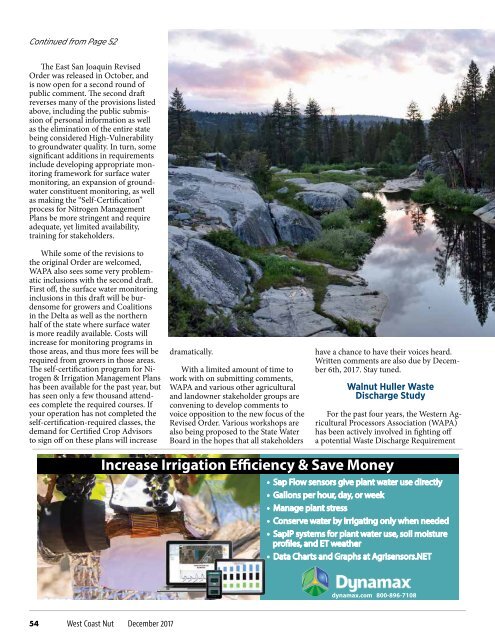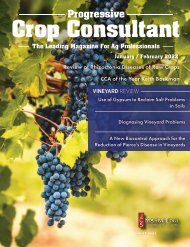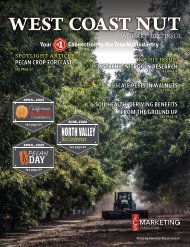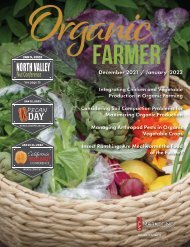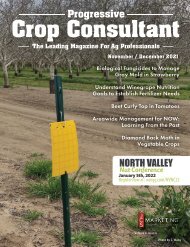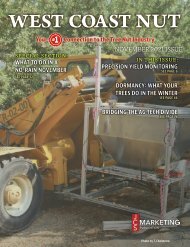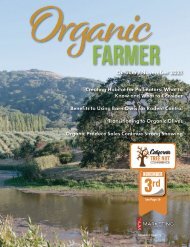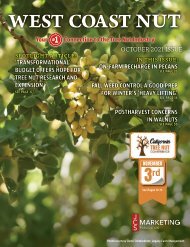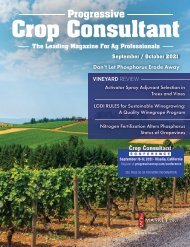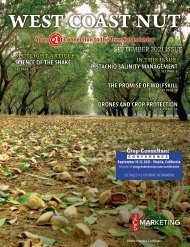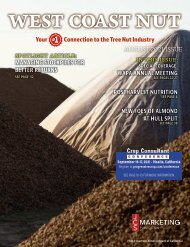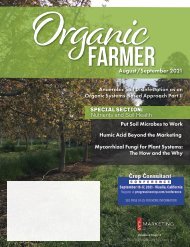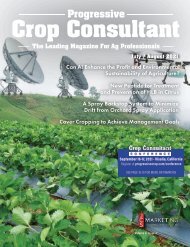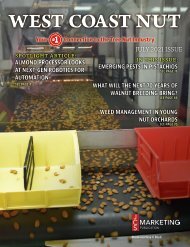WCN_Dec17WEB
You also want an ePaper? Increase the reach of your titles
YUMPU automatically turns print PDFs into web optimized ePapers that Google loves.
Continued from Page 52<br />
The East San Joaquin Revised<br />
Order was released in October, and<br />
is now open for a second round of<br />
public comment. The second draft<br />
reverses many of the provisions listed<br />
above, including the public submission<br />
of personal information as well<br />
as the elimination of the entire state<br />
being considered High-Vulnerability<br />
to groundwater quality. In turn, some<br />
significant additions in requirements<br />
include developing appropriate monitoring<br />
framework for surface water<br />
monitoring, an expansion of groundwater<br />
constituent monitoring, as well<br />
as making the “Self-Certification”<br />
process for Nitrogen Management<br />
Plans be more stringent and require<br />
adequate, yet limited availability,<br />
training for stakeholders.<br />
While some of the revisions to<br />
the original Order are welcomed,<br />
WAPA also sees some very problematic<br />
inclusions with the second draft.<br />
First off, the surface water monitoring<br />
inclusions in this draft will be burdensome<br />
for growers and Coalitions<br />
in the Delta as well as the northern<br />
half of the state where surface water<br />
is more readily available. Costs will<br />
increase for monitoring programs in<br />
those areas, and thus more fees will be<br />
required from growers in those areas.<br />
The self-certification program for Nitrogen<br />
& Irrigation Management Plans<br />
has been available for the past year, but<br />
has seen only a few thousand attendees<br />
complete the required courses. If<br />
your operation has not completed the<br />
self-certification-required classes, the<br />
demand for Certified Crop Advisors<br />
to sign off on these plans will increase<br />
dramatically.<br />
With a limited amount of time to<br />
work with on submitting comments,<br />
WAPA and various other agricultural<br />
and landowner stakeholder groups are<br />
convening to develop comments to<br />
voice opposition to the new focus of the<br />
Revised Order. Various workshops are<br />
also being proposed to the State Water<br />
Board in the hopes that all stakeholders<br />
have a chance to have their voices heard.<br />
Written comments are also due by December<br />
6th, 2017. Stay tuned.<br />
Walnut Huller Waste<br />
Discharge Study<br />
For the past four years, the Western Agricultural<br />
Processors Association (WAPA)<br />
has been actively involved in fighting off<br />
a potential Waste Discharge Requirement<br />
54 West Coast Nut December 2017


